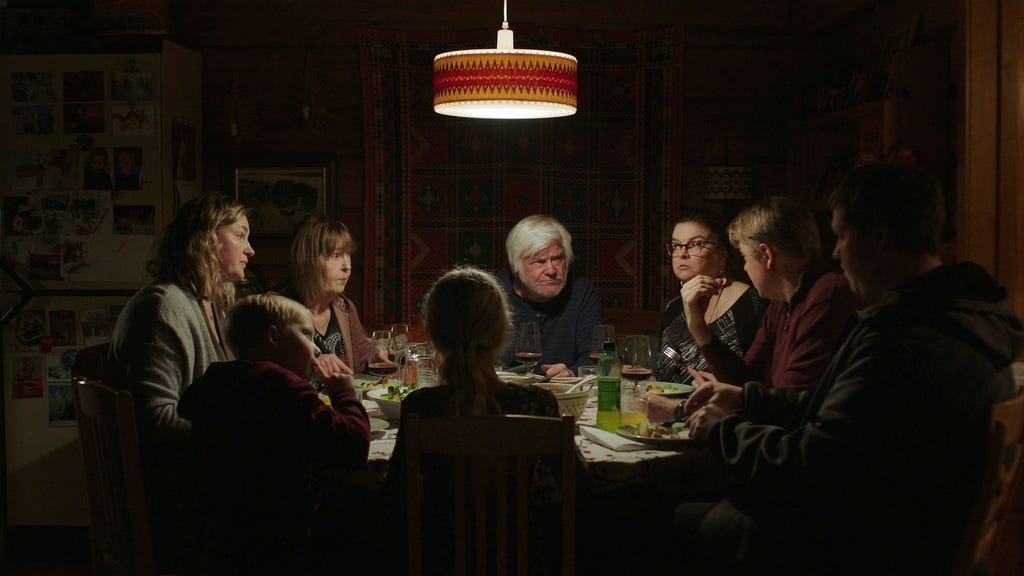Finland’s Oscar submission, ”Family Time,” stands in stark contrast to the saccharine sweetness of typical holiday fare. Eschewing the predictable tropes of romantic Christmas movies, this film offers a refreshingly dry and comedic portrayal of family dynamics, complete with the raw, unfiltered realities of alcohol-fueled arguments and emotional breakdowns. Rather than presenting a sanitized, idealized version of family gatherings, ”Family Time” delves into the complexities and often uncomfortable truths of familial relationships, exploring the simmering tensions and unspoken resentments that can bubble to the surface during holiday celebrations. This unflinching approach, coupled with a distinctly Finnish laconic humor, sets the film apart and provides a nuanced exploration of the human condition within the familiar context of a family Christmas.
The film’s comedic elements arise not from slapstick or contrived situations, but from the awkward silences, passive-aggressive comments, and subtle power plays that characterize many family interactions. This understated humor resonates with a sense of realism, capturing the subtle nuances of communication and the unspoken dynamics that often define family relationships. The film’s strength lies in its ability to find humor in the mundane, the awkward, and the uncomfortable, reflecting the experiences of many who find themselves navigating the complexities of family gatherings. This approach allows ”Family Time” to offer a relatable and poignant depiction of the human experience, stripped of the sentimental gloss that often characterizes holiday films.
The presence of alcohol serves not merely as a backdrop, but as a catalyst, exacerbating existing tensions and loosening inhibitions. It becomes a social lubricant that, while facilitating initial conviviality, ultimately amplifies underlying anxieties and resentments. The film doesn’t shy away from portraying the messy realities of alcohol consumption within a family setting, showcasing the disinhibition, emotional volatility, and potential for conflict that can arise. This portrayal adds another layer of complexity to the family dynamics, highlighting the ways in which external factors can influence and intensify interpersonal relationships.
”Family Time” distinguishes itself by avoiding simplistic characterizations and instead presenting multi-faceted individuals with their own flaws, vulnerabilities, and motivations. Each character carries their own baggage, contributing to the complex tapestry of family history and contributing to the intricate web of relationships. The film allows these complexities to unfold gradually, revealing the layered narratives that shape each individual and their interactions with others. This nuanced approach to character development allows for a more authentic and engaging exploration of family dynamics, moving beyond stereotypical representations and embracing the messiness of human experience.
While the film centers on the dysfunction and complexities of a specific family, its themes resonate universally. It explores the universal struggles of communication, the enduring power of family history, and the challenges of maintaining relationships amidst conflicting personalities and unresolved issues. The film’s exploration of these themes transcends cultural boundaries, offering a poignant reflection on the human condition that resonates with viewers regardless of their background. By focusing on these fundamental aspects of human interaction, ”Family Time” achieves a level of emotional depth and relatability that sets it apart.
Ultimately, ”Family Time” offers a refreshing alternative to the predictable holiday movie formula. Its willingness to embrace the complexities of family dynamics, its nuanced characterizations, and its subtle, laconic humor create a film that is both entertaining and thought-provoking. By eschewing sentimentality and embracing realism, ”Family Time” provides a compelling and ultimately relatable portrayal of the joys, frustrations, and enduring bonds of family life, reminding us that even in the midst of dysfunction, there exists a profound connection that binds us together. This is a film that stays with you long after the credits roll, prompting reflection on the dynamics of one’s own family and the enduring complexities of human relationships. It is a testament to the power of storytelling to illuminate the often-unseen truths of our lives, reminding us that even in the most challenging circumstances, there is always a story to be told, and that sometimes, the most compelling stories are the ones that reflect the messy realities of our own experiences.














